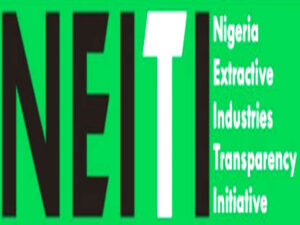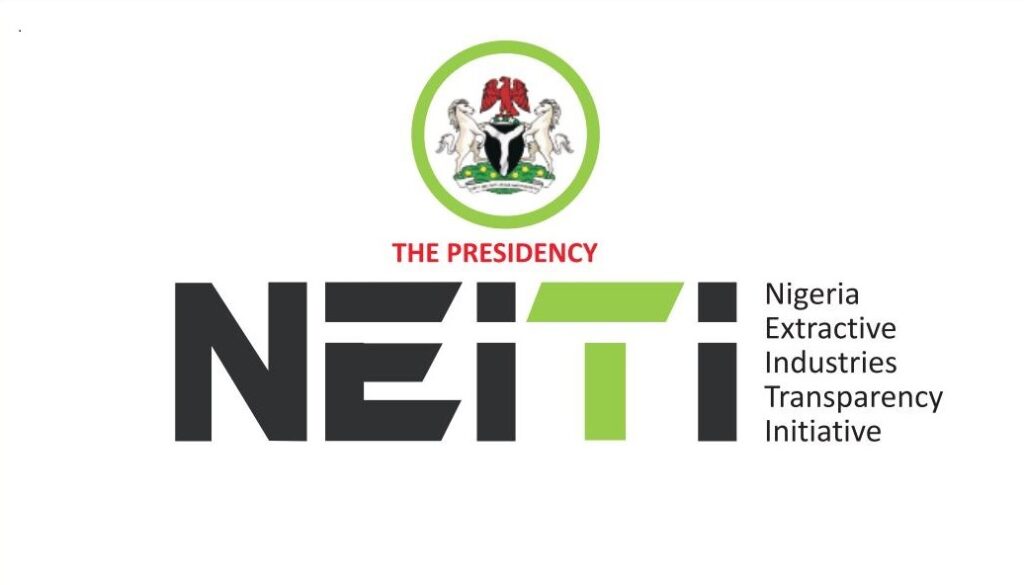The Federal Government through the Nigerian Upstream Regulatory Commission (NUPRC) has recorded a major reduction in crude oil theft from over 102,000 barrels per day in 2021 to 9,600 barrels per day as of September 2025.
The Commission Chief Executive, Gbenga Komolafe stated that this was achieved through collaboration with security agencies, private contractors and community stakeholders in implementing the Upstream Measurement Regulation and the Advance Cargo Declaration Regulation.
The result, he stated, was a reduction in theft by over 90 per cent in four years.
He spoke in Lagos on Thursday during at the 2025 Association of Energy Correspondents of Nigeria (NAEC) conference in Lagos.
Prior to Komolafe’s remark, the Nigerian Extractive Industries Transparency Initiative (NEITI), had given an industry report on crude oil theft, disclosing that the Federal Government lost a total of 13.5 million barrels of crude oil worth $3.3 billion to theft and pipeline sabotage between 2023 and 2024.
He decried the lack of transparency and accountability that had bedeviled the oil and gas industry, saying there was the need for openness, transparency and innovation in driving the oil and gas value chain.
He spoke on the theme, ‘Nigeria’s Energy Future: Exploring Opportunities and Addressing Risks for Sustainable Growth.’
Orji noted that the lost revenue could have supported a full year of the federal health budget or provided energy access to millions of households.
He further disclosed that that its 2021–2022 Oil and Gas Industry Reports indicated that Nigeria earned $23.04 billion in 2021 and $23.05 billion in 2022 from the sector.
In addition, it stated that N1.5 trillion were owed to the Federation by some companies and government agencies, saying the funds could have supported the provision of energy infrastructure and healthcare to the people.
This is why transparency and accountability are not optional but necessary conditions to guarantee a more sustainable energy future for Nigeria, he stated.
The ES stated that NEITI is committed to ensuring that every barrel of crude produced is duly accounted for, noting that the secrecy in the value chain remains a matter of concern.
According to him, there is the need for reliable data in the industry as “data build trust, trust drives investment, investment generates revenues and revenues deliver impact.”
He said, “Over the past decade, NEITI has evolved from an auditing agency to a governance reform institution.
“We have institutionalised regular audits of oil, gas, and solid mineral sectors, tracking production, payments, and remediation; developed Nigeria’s Beneficial Ownership Register, unmasking the true owners of over 4,800 extractive assets, and helping the government combat corruption and illicit financial flows; and launched the NEITI Data Centre—a national open-data infrastructure that provides real-time public access to industry information.
“We have also strengthened partnerships with NUPRC, NMDPRA, and NCDMB to promote transparency in licensing, metering, and host community trust management and introduced the Just Energy Transition and Climate Accountability Framework to ensure that Nigeria’s shift to cleaner energy is transparent, inclusive, and fair.
“These are not ceremonial milestones. They are practical governance instruments designed to make transparency the DNA of Nigeria’s extractive sector.”
He stated that as Nigeria positions gas as its transition fuel and renewable energy as its future there was the need to adopt innovative approaches with data and open contracting in the value chain.
“Our energy future must rest on verifiable data, open contracts, measurable emissions, and accountable institutions.
“NEITI envisions a sector where every dollar is traceable, every contract is public, every decision is transparent, and every Nigerian citizen can see how natural resources translate into national prosperity.
EITI, we are committed to ensuring that every barrel produced, every cubic foot of gas commercialised, and every kobo earned contributes to national development—in full public view,” he said.
2.7m barrels target on course – NUPRC
However, the NUPRC CCE represented by the Director, Lagos Office, Mr. Paul Osu stated that the commission had prioritized production optimization and recovery enhancement.
“By reviewing field development plans, supporting brownfield optimization and enabling the re-entry of shut-in wells, the NUPRC has facilitated renewed activity across mature assets.
“These interventions are projected to deliver incremental volumes exceeding one million barrels of oil per day, a key milestone toward achieving the national production target of 2.5 million BOPD by 2027,” he stated.
‘Signature Bonus slashed from $100m to $10m’
The CCE also disclosed that the Federal Government has reduced the cost of the signature bonus from about $100 million to $10 million in its drive to actualise the 2.5 million barrels per day target in 2027.
Daily Trust reports that signature bonus is the non-refundable upfront payment made to the government for the exclusive rights to develop an oil block.
With the federal government targeting 2.5m barrels per day production by 2027, the reduction in signature bonus was a strategic decision to drive investment and encourage the development of more oil blocks.
According to Komolafe, the downward review of signature bonuses is among several strategic reforms introduced to reposition Nigeria’s upstream petroleum sector for growth and competitiveness.
“This single policy shift has enhanced investor confidence, enabled early field development, and reaffirmed Nigeria’s standing as a transparent investment destination,” Komolafe stated.
He added that NUPRC has implemented a fully digital and transparent licensing framework to improve efficiency and reduce human interference during bid rounds.
According to him, the 2024 mini-bid round minimised human interface, ensuring maximum transparency and fairness in the licensing process.
Komolafe further revealed that the implementation of the Host Communities Development Trust (HCDT) provisions as stipulated in the Petroleum Industry Act (PIA 2021) has been transformative.
He said the Commission has successfully inaugurated over 90 Trusts across the Niger Delta, ensuring that development funds flow directly to communities.
“This model not only secures local ownership, but also guarantees peace, stability and continuity in production, key pillars for sustained energy security,” he added.
He explained further that the NUPRC is “advancing Nigeria’s gas agenda as part of the “Decade of Gas” and the nation’s energy transition pathway.”
“Natural gas remains our most reliable transition fuel, a catalyst for industrialization, power generation and clean energy substitution. By promoting gas monetization, flare elimination and gas-based investments, the Commission is reinforcing Nigeria’s commitment to a just and balanced energy transition.
“Globally, the context reinforces this direction. The IEA projects that upstream investment will surpass $580 billion in 2025, marking a steady recovery from pandemic lows. While renewables will continue to grow, hydrocarbons will remain central to industrialization, particularly in emerging economies like Nigeria,” he added.
‘Energy, power reforms yet to achieve results’
The conference chairman and President, Masters Energy Group, Dr. Uche Ogah stated that the power and energy reforms recently implemented by the federal government must deliver tangible results.
He pointed at the PIA 2021, the fuel subsidy removal of 2023 and the Electricity Act which redefines how power is generated, transmitted and consumed with states now involved in the value chain.
Despite these, he stated that as observed by the Nigerian Society of Engineers (NSE) recently, the power reforms have not translated into achieving tangible improvement in supply with actual generation hovering around 5000 megawatts.
Ogah said, “Among factors responsible for the power inadequacy despite reforms are gas supply constraints, transmission bottlenecks and commercial inefficiency cutting across the entire electricity value chain.
“So three major energy challenges remain daunting for Nigeria as of today. First is ensuring that the energy and power reforms deliver tangible results to justify the reforms. The second challenge is maximising the value of our hydrocarbon endowment before it declines and third is delivering universal, accessible and affordable energy to every Nigerian household.”
According to him, Nigeria’s energy future is not a choice between opportunities and risks but a challenge to navigate both dynamics together.
“Success will demand the pragmatic, multi-pronged strategy that leverages our strength while confronting our vulnerabilities head-on,” he added.
He stated that the oil and gas remains the backbone of the economy supporting millions of jobs but more value could be delivered if the nation acts decisively.
NDPHC lauds Tinubu for Approval of ₦4trn Legacy Debt Defrayment
The Managing Director of the Niger Delta Power Holding Company (NDPHC), Engr. Jennifer Adighije, at the conference commended President Bola Ahmed Tinubu for his administration’s commitment to revamping Nigeria’s power sector, following his recent approval of the defrayment of the ₦4 trillion legacy debts owed to generation companies (GenCos).
Adighije described the President’s approval as a landmark decision that would go a long way in restoring the financial health of the sector.
“With the funds available, we at NDPHC — given our unique mandate as the government’s intervention entity in the power sector — plan to deploy a significant portion of these recovered funds toward converting our power plants from open-cycle to combined-cycle operations,” she said.
“This will not only enhance efficiency but also diversify our generation mix, aligning with Nigeria’s Energy Transition Plan,” she added.
Adighije further noted that the power sector is currently undergoing a major transition, moving towards bilateral trading and the implementation of a cost-reflective tariff regime.
“What this means for us is that we are beginning to see increased liquidity within the sector, which in turn is making it more bankable and attractive for investment,” she explained.
“For us in the power generation space, we understand that cash flow drives efficiency and sustainability. Improved liquidity ensures that generation companies are better positioned to reinvest in the power sector,” Adighije said.
She reaffirmed NDPHC’s commitment to supporting ongoing reforms in the sector and called for sustained collaboration among all stakeholders to ensure energy security and economic growth.
Meanwhile, the association conferred on the company, Power Company of the year Award.





